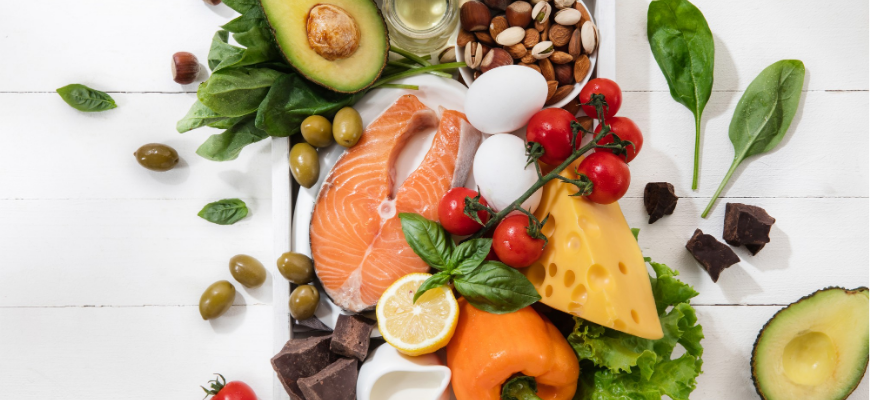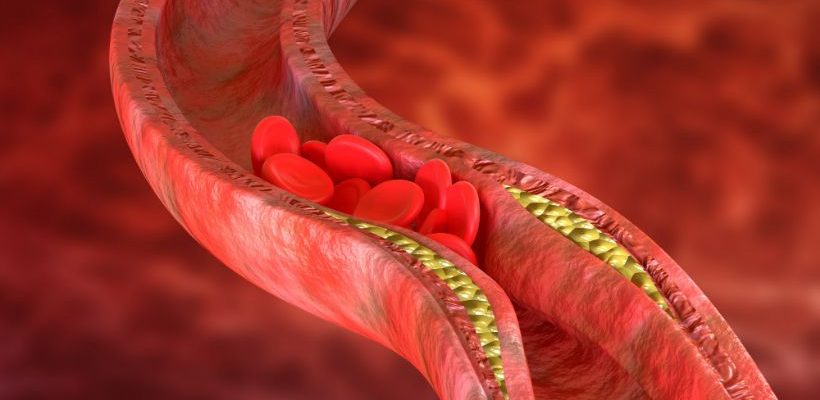10 Foods That Reduce Anxiety and the Ones That Worsen It

Do you know that as per the reports, one of the biggest health disorders in the USA is stress, which leads to various more serious conditions? Yes, that’s true! But breathing exercises and nutritious foods reduce stress and anxiety. Stress is a common condition that can be caused by many factors. For some people, the best way to relieve stress is to eat. However, you need to keep in mind that not all foods are good for stress relief. In this blog, we will explore various foods that reduce anxiety. We will also talk about the ones that should be avoided at all costs.
Which Are the Foods That Reduce Anxiety?
Now, we are going to tell you about some of the top anxiety–reducing foods that can help you have a healthier and happier life without any stress.
1. Vegetables:
Research says that vegetables are one of the best foods for anxiety reduction. They contain magnesium and vitamin C, which are both important for reducing stress levels and enhancing moods. They also contain antioxidants that help reduce inflammation in the body which can cause or worsen depression symptoms or anxiety attacks.
People who deal with chronic pain may find relief from eating vegetables as well. This is because they are believed to contain natural painkillers such as capsaicin (found in hot peppers) and curcumin (found in turmeric).
2. Nuts and Seeds:
Next up we have nuts and seeds as foods that reduce anxiety. These high-fat foods are great for reducing tension because they contain omega-3 fatty acids which have been shown to improve tension by relaxing your nervous system.
Incorporating foods that reduce stress such as walnuts and pumpkin seeds is great for beginners because of their low-fat content.
3. Dark Chocolates
Next up we have dark chocolate as research says that it is one of the foods that reduce anxiety fast. It is packed with flavonols and antioxidants that reduce tension by increasing blood flow to your brain. This can increase your ability to be alert and concentrate on tasks which can decrease symptoms of anxiety.
4. Anti-inflammatory Foods
Anxiety is not just a mental health issue; it also has physical effects such as increased inflammation and high cortisol levels. Foods that reduce anxiety and help fight inflammation are avocado, berries, mint leaves, and turmeric. Remember that turmeric is great because it has been shown to have anti-inflammatory properties. It also contains curcumin which has been shown to improve cognitive performance.
You need to keep in mind that along with food for stress reduction, there are some foods that should be avoided if you’re trying to reduce your stress. Such foods include fast food, fried foods, and sugar-sweetened beverages. You should try healthy ways to reduce stress like journaling each day or listening to calming music while relaxing in a bubble bath.
5. Fish Rich in Healthy Fats
Fish rich in healthy fats, such as omega-3 fatty acids, have been shown to aid in anxiety and stress reduction. The consumption of fish oil for anxiety, which is derived from these fatty fish, has been linked to improvements in mood and mental well-being.
Research suggests that the omega-3 fatty acids found in the best fish oil for depression anxiety can help alleviate symptoms of depression and anxiety, making it one of the best natural remedies for those seeking relief from these conditions.
6. Eggs
Eggs and anxiety are closely related because it is a nutrient-dense food that can contribute to anxiety and stress reduction. Rich in nutrients like vitamin D, B vitamins, and omega-3 fatty acids, eggs are said to provide essential building blocks for brain health.
Vitamin D plays a role in mood regulation, while vitamin B is crucial for maintaining a healthy nervous system. Moreover, omega-3 fatty acids found in eggs have been associated with improved mental well-being as well. So, incorporating eggs for anxiety into a balanced diet can be a beneficial strategy for managing stress levels.
7. Turmeric
Turmeric, renowned for its medicinal properties, has been studied for its potential benefits in anxiety and stress reduction. Curcumin, the active compound in turmeric, has shown promising effects on mood and mental health. Research suggests that turmeric for anxiety may help alleviate symptoms by regulating neurotransmitters involved in mood regulation.
Furthermore, its anti-inflammatory properties may contribute to reducing symptoms of depression and anxiety. So, we can say that incorporating turmeric to reduce depression and anxiety into one’s diet or taking curcumin supplements could be a natural approach to supporting mental well-being.
8. Chamomile
Chamomile and lavender tea have been widely recognized for their calming properties and potential benefits in anxiety and stress reduction. Lavender, with its pleasant aroma, is also believed to have anxiety-relieving properties. Chamomile for anxiety is well-known for its soothing effects on the nervous system, promoting relaxation and reducing anxiety symptoms.
So, combining these two herbs in tea form can create a soothing and comforting beverage that may help alleviate stress and promote a sense of calmness, making chamomile and lavender tea for anxiety a popular choice for those seeking natural remedies for stress and anxiety.
9. Yogurt
Yogurt for depression and anxiety is yet another good option as it is a probiotic-rich food. Probiotics found in yogurt promote a healthy gut microbiome, which plays a crucial role in mental well-being. It is believed that a balanced gut flora can positively impact mood and alleviate symptoms of anxiety and that’s why we can say that yogurt helps with anxiety.
Additionally, yogurt’s nutrient content, including B vitamins and magnesium, may contribute to overall mental health. Incorporating yogurt into one’s diet may be a simple and tasty way to support emotional well-being and potentially alleviate symptoms of depression and anxiety.
10. Green Tea
Green tea has gained recognition for its potential role in anxiety and stress reduction. The natural compounds present in green tea, such as L-theanine and polyphenols, have been found to promote relaxation and improve mental clarity.
Green tea for anxiety is known to have a calming effect on the nervous system without causing drowsiness. Choosing high-quality and the best green tea for anxiety can ensure maximum benefits. This further makes it one of the best natural options for managing anxiety and stress levels.
What Foods Worsen Stress and Anxiety?
As there are some foods that reduce anxiety, reports say that there are some that can worsen it as well. These include foods that increase stress hormones and oxidative stress.
Different people react to food differently, but there are some general guidelines for what can worsen anxiety:
High-sugar foods:
You should know that, as per the reports, caffeine and alcohol all increase the risk of anxiety symptoms. Moreover, candy, donuts, ice cream, and many other sugary snacks can also worsen anxiety symptoms. Sugar increases stress hormones and this can further lead to an increase in anxiety symptoms.
Fat and Protein:
Some reports suggest that high-fat or protein foods can also increase oxidative stress in the body which has been linked to increased anxiety symptoms.
Caffeine
Contrary to popular belief that it is a food for stress reduction, research says that caffeine is not good for overall health. Yes, you heard it right. It can worsen anxiety due to its effects on the body’s stress hormones and cortisol levels.
Alcohol
Reports say that alcohol is one of the worst things you can consume. It is said to have numerous negative impacts on your physical and mental health including causing stress and anxiety. If you are already dealing with stress, it can even make things worse for you.
Final thoughts
We hope that now you are well aware of the foods to reduce depression and anxiety. By incorporating them into your diet and avoiding the ones that increase stress, you can fight anxiety and depression effectively.
References
2007. Stress a Major Health Problem in The U.S. American Psychological Association. https://www.apa.org/news/press/releases/2007/10/stress
2014. Using food to reduce stress: Effects of choosing meal components and preparing a meal. Behavior Lab. http://www.behaviorlab.org/Papers/FoodStress.pdf
2018. Combating Stress with a Balanced Nutritional Diet. Mhit.org. http://www.mhit.org/assets/combat-nutritional-stress.pdf
2023. Foods and Drinks Linked to Anxiety: What to Avoid and What to Eat. US News & World Report. https://health.usnews.com/wellness/food/articles/foods-and-drinks-linked-to-anxiety
Also Read
REVEALING THE MYSTERIOUS FACTS ABOUT SALT INTAKE
10 DANGEROUS EFFECTS OF STRESS ON YOUR HEALTH AND HAPPINESS
7 GAME-CHANGING TIPS FOR MANAGING TYPE 2 DIABETES
Understanding Endometrial Cancer Treatment and Diagnosis

In the realm of women’s health, the battle against cancer stands as one of the greatest challenges. Among the various forms of this relentless disease, endometrial cancer emerges as a prominent adversary.
So, with a mission to empower and enlighten, this blog will unravel the mysteries surrounding this prevalent gynecological cancer, shedding light on endometrial cancer treatment, risk factors, and diagnosis.
What increases the Endometrial Cancer Risk Factors?
These are some factors that may increase the risk of endometrial cancer:
- Early menstruation (starting before age 12)
- Early menopause (before age 50)
- Endometrial polyps
- Estrogen replacement therapy
- Irregular periods
- Never being pregnant
- Obesity
- Polycystic ovary syndrome (PCOS)
- Tamoxifen use (a drug for breast cancer treatment)
Endometrial Cancer Prognosis
Endometrial cancer prognosis is a crucial aspect of understanding the potential outcome and future course of the disease. Factors such as the stage of cancer at diagnosis, grade of the tumor, and the presence of specific biomarkers play significant roles in determining prognosis.
A favorable prognosis is often associated with early-stage diagnosis, lower tumor grade, and the absence of metastasis. However, you should know that each case is unique, and the prognosis may vary. Through advanced medical advancements and personalized endometrial cancer treatment approaches, medical professionals strive to optimize outcomes and provide hope to individuals facing endometrial cancer.
Aside from these factors, some health conditions also increase the risk of developing cancer, and these conditions include breast cancer, colon cancer, diabetes, gallbladder disease, and high blood pressure.
Endometrial Cancer Diagnosis
This condition is usually detected at very early stages because it produces abnormal vaginal bleeding. This symptom urges women to see their doctors. When the condition is diagnosed early on, surgery can be performed to remove the uterus, which successfully cures the condition. Other signs and symptoms of endometrial cancer include:
- Abnormal blood-tinged discharge from the vagina
- Bleeding in between periods
- Pain during intercourse
- Pain in the pelvis
- Vaginal bleeding after menopause
Seeing a doctor and seeking endometrial cancer treatment right away is important whenever you experience any of these symptoms. While they may be signs of a completely different condition, it’s still essential to get checked right away to ensure that the condition is ruled out.
What Are Some Endometrial Cancer Treatment Methods?
1. Surgery
Surgery is done to remove the uterus, and oftentimes, the fallopian tubes and ovaries, too. This is believed to be a major alternative treatment for endometrial cancer. It is usually done for the early stages of cancer when the problem is still contained inside the uterus.
2. Radiation Treatment
Radiation treatment for endometrial cancer is yet another way to combat this cancer. This endometrial cancer treatment method makes use of powerful energy beams to kill cancer cells. In some cases, radiation may also be done prior to doing surgery, as it shrinks tumors and makes them easier to remove.
3. Hormone therapy
Another effective method to fight this cancer is hormone treatment for endometrial cancer. It involves the intake of medication, which in turn affects the hormone levels in the body. This is usually done for those with advanced endometrial cancer, especially that which has already spread outside the uterus.
4. Chemotherapy
One of the most common cancer treatments, chemotherapy uses chemicals to kill cancer cells and is also recommended for women with advanced levels of endometrial cancer. So, we can say that chemotherapy is an effective metastatic endometrial cancer treatment.
Endometrial Cancer Staging
If indeed you are diagnosed with endometrial cancer, you will need to undergo endometrial cancer staging treatment. Your treatment method will depend on the various characteristics of the disease. Some of them are what stage it is, your overall health, and of course, your preferences in terms of treating it.
Final Thoughts
Endometrial cancer, just like other diseases, should not be ignored as it can prove to be fatal. Now that you know about its risk factors, make sure to take precautions. And if you notice any of the above mentioned symptoms, contact a doctor immediately for diagnosis. Remember that only effective endometrial cancer treatment can help you fight that dangerous disease.
Also Read
UNVEILING THE DANGEROUS ASPARTAME SIDE EFFECTS ON HEALTH
SLEEP APNEA: THE SURPRISING CULPRIT BEHIND YOUR RESTLESS NIGHTS
TIPS TO MAINTAIN AN ACTIVE LIFESTYLE WITH EARLY ONSET ALZHEIMER’S
Understanding How to Lower Triglycerides Naturally?

Recent studies have shown that borderline patients with high levels of triglyceride can lower triglycerides with a change in lifestyle and a change in diet. Yes, you heard it right!
Triglycerides are a form of fat in the bloodstream that can rise if someone is overweight, inactive, a smoker, consumes too much alcohol or eats a diet high in carbohydrates. Are you wondering why and how to lower triglycerides naturally? Well, lowering triglycerides naturally can help reduce the risk of heart disease and improve overall health. And as for how to lower it, keep reading as we are going to tell you about the best way to lower triglycerides.
Understanding the Levels of Triglycerides
What is a normal triglyceride number and how to lower triglycerides? Now that you know what are, let us understand this as well. Experts from a screening study demonstrated that people who have less than 100mg/dL of triglycerides are the healthiest and that these levels are optimal. Remember that the normal triglyceride level for males and females might differ a bit.
Borderline triglyceride patients have levels between 150-199mg/dL. Remember that borderline patients should consider losing 5% of their body weight and limiting their calorie intake along with limiting sugars to less than 10% of their total intake. You should know that weight loss has shown valuable changes in lipids and lipoproteins. So, with a 5-10% loss of body weight comes positive benefits such as a 20% reduction of triglycerides, a 15% decrease in LDL cholesterol, and an 8-10% decrease in HDL cholesterol.
2 Ways to lower triglycerides
Now, get ready to know how to lower triglycerides naturally as we are about to tell you how to quickly lower triglycerides.
Triglycerides diet
There has been a lot of confusion about the best way to lower triglycerides and how much it actually affects the cardiovascular system. Borderline patients are recommended to consume no more than 100g of fructose from processed foods. Foods that assist in triglyceride treatment include fruits and vegetables that are low in fructose, such as strawberries, grapefruit, bananas, and peaches should be eaten. A diet to lower high TGL causes should consist of high-fiber whole grains and healthy unsaturated fats such as omega-3 fatty acids along with high triglyceride meds.
Triglycerides and exercise
Remember that you should do exercise to lower triglycerides. We are saying this because regular exercise can help lower triglycerides by increasing muscle mass, improving insulin sensitivity, reducing body fat, and making sure that you have only good triglycerides. If we talk about the duration of exercise, at least 150 minutes per week should help reduce triglycerides.
Conclusion
So, if you didn’t know how to lower triglycerides naturally, we hope that now you are familiar with everything about it. And we believe that when you know how to reduce high triglyceride symptoms, all you need to do is manage your diet and exercise.
Also Read
7 GAME-CHANGING TIPS FOR MANAGING TYPE 2 DIABETES
EXPLORING THE INTRICATE LINK BETWEEN CORTISOL AND SLEEP PATTERNS
DISCOVERING 5 EFFECTIVE WAYS FOR PREVENTION OF ASTHMA
10 Miraculous Health Benefits of Pomegranate

Forget apples a day, pomegranates might be the new key to a healthier you! These ruby-red fruits aren’t just visually stunning; they’re loaded with antioxidants, vitamins, and minerals that have been linked to a variety of impressive health benefits. From ancient myths about eternal life to modern scientific research, pomegranates have captured our attention for centuries. In this article, we’ll delve into the science behind the hype and explore the many health benefits of pomegranates. Are you ready to unlock the potential of this superfruit? Let’s dive in!
Health Benefits of Pomegranate
1. Pomegranate Nutrition Facts
Pomegranate, a jewel-like fruit, not only entices with its rich taste but also packs a punch when it comes to nutrition. Bursting with antioxidants, vitamins, and minerals, pomegranate offers miraculous health benefits. For instance, if you check pomegranate juice nutrition, you’ll realize that it delivers a refreshing dose of antioxidants. Similarly, pomegranate seeds nutrition provides fiber and healthy fats to the body. According to experts, the nutritional values of pomegranates support a strong immune system and heart health.
- Calories: 234
- Protein: 4.7 grams
- Fat: 3.3 grams
- Carbohydrates: 48 grams
- Fiber: 11.3 grams
- Sugar: 24 grams
- Vitamin C: 32% of the Daily Value (DV)
- Folate: 27% of the DV
- Potassium: 13% of the DV
- Vitamin K: 6% of the DV
- Manganese: 7% of the DV
Here are some additional highlights of pomegranate nutrition:
- High in Fiber: Pomegranates are a good source of fiber, which is important for digestive health and can help you feel full longer.
- Rich in Antioxidants: Pomegranates are packed with antioxidants, which can help protect your cells from damage.
- Good Source of Vitamins and Minerals: Pomegranates are a good source of vitamin C, folate, potassium, and vitamin K.
2. Heart Health
Many health practitioners believe that the antioxidants in pomegranate, particularly punicalagins, help the heart by lowering plaque buildup in the arteries. Pomegranate juice consumption may reduce plaque buildup in the blood vessels and allow for proper blood flow. Studies suggest that pomegranate juice may also help lower levels of LDL (low-density lipoprotein), the “bad” cholesterol, and potentially increase HDL (high-density lipoprotein), the “good” cholesterol.
3. Cures Hypertension
Research suggests that pomegranate juice may have a positive effect on blood pressure, potentially acting as a natural supplement for those with hypertension. Studies have shown that consuming pomegranate juice daily may lead to a modest reduction in systolic blood pressure (the top number in a reading). However, it’s important to note that:
- Dosage may vary: The amount of pomegranate juice needed for potential blood pressure benefits is still being researched. ¼ cup might be a good starting point, but consult your doctor for personalized advice.
- Not a replacement for medication: Pomegranate juice should not be seen as a replacement for prescribed blood pressure medication. It’s crucial to continue following your doctor’s recommendations.
- Potential interactions: Pomegranate juice can interact with certain medications, so discuss it with your doctor before incorporating it into your routine.
4. Prevents Cancer
Pomegranates are being studied for their potential cancer-fighting properties. Early research suggests that pomegranate extracts may slow or inhibit the growth of certain cancer cells. In vitro and animal studies have shown promise for the use of pomegranate extracts against various cancers, including lung cancer, breast cancer, and prostate cancer. However, it’s important to understand some key points:
- Early Stage Research: Most research on pomegranate and cancer is in the early stages. More human trials are needed to confirm the effectiveness and safety of pomegranate for cancer prevention or treatment.
- Not a Cure: Pomegranate should not be considered a cure for cancer. It may be a promising complementary therapy alongside traditional treatment options, but it should always be discussed with a doctor.
- Focus on Mechanisms: Consider mentioning the potential mechanisms by which pomegranate might work, such as its antioxidant properties or its ability to influence cell growth.
5. Skin & Weight Loss Benefits of Pomegranate
Pomegranates are also an excellent fiber source found in pomegranate seeds. You should know that just a half-cup serving of pomegranate seeds provides about five grams of fiber, that’s 20% of the recommended daily intake of fiber. This further facilitates one of the greatest pomegranate benefits for the skin and keeps the skin healthy and glowing.
According to experts, pomegranates have the ability to reduce weight. So, it won’t be wrong to say that pomegranate benefits for weight loss are among of its biggest benefits. For this reason, eating pomegranates can be especially beneficial for those who are willing to lose weight.
6. Kidney Stones
Research has revealed that drinking pomegranate juice can treat kidney stones. Owing to its abundant antioxidants and unique compounds, pomegranate juice for kidney stones may prevent the formation of these painful stones.
Therefore, incorporating this tasty beverage into your routine could reduce your risk of developing kidney stones and promote better kidney health overall.
7. Antimicrobial Properties
Experts also believe that pomegranates contain natural compounds that can combat bacteria, viruses, and fungi. This means that antimicrobial pomegranate can help improve oral health and boost your immune system.
8. Exercise Endurance
Now if you’re confused about how pomegranate and exercise endurance are related, you should know that the mighty pomegranate or its juice can boost endurance. Studies have shown that pomegranate contains antioxidants that can fuel your workouts with natural power.
9. Brain Health
When you think about pomegranate’s effect on the brain, researchers have found that it also contains polyphenols that support cognitive function and protect against age-related decline. A Pomegranate for the brain can improve memory, boost focus, and promote overall brain health.
Other than these, Pomegranate extract benefits the brain in many other ways including mood regulation, reduced oxidative stress, and more.
10. Digestive Health
Last but not least, Pomegranate’s high fiber content aids in smooth digestion and promotes healthy bowel movements. Simply put pomegranate juice for the digestive system possesses natural anti-inflammatory properties that soothe the digestive system and alleviate gastrointestinal discomfort.
Final Words
Despite all the benefits of pomegranates, they are still not eaten on as large of a scale as other fruits. It won’t be wrong to say that a pomegranate a day keeps the doctor away! Some even believe that eating pomegranates when you are sick can help you eliminate a common cold.
References
Pomegranate as a Functional Food and Nutraceutical Source. USDA Agriculture Research Service. https://www.ars.usda.gov/ARSUserFiles/60701000/Misc%20Pubs/o8.pdf
Pomegranates, Raw. USDA Agriculture Research Service. https://fdc.nal.usda.gov/fdc-app.html#/food-details/169134/nutrients
Pomegranate for Prevention and Treatment of Cancer: An Update. National Library for Medicine. https://www.ncbi.nlm.nih.gov/pmc/articles/PMC5560105/
Fiber content and quality of pomegranate (Punica granatum L.) Cultivated in a Coastal Oasis. International Journal of Current Microbiology and Applied Sciences.
https://www.ijcmas.com/vol-3-2/Elhem%20Mansour,%20et%20al.pdf
Herbal and Nutritional Treatment of Kidney Stones. American Herbalists Guild. https://www.americanherbalistsguild.com/files/journal/vol%2010%20no%202/Kidney%20Stones%20V10N2.pdf
Effect of pomegranate extracts on brain antioxidant markers. National Library of Medicines. https://www.ncbi.nlm.nih.gov/pmc/articles/PMC5488477/
Also read
Discovering 5 Incredible Health Benefits Of Fats
Uncovering Top 6 Expert Tips For A Healthy Heart
Effective Ways To Prevent Acne For Clear Skin In Adults
10 Dangerous Effects Of Stress On Your Health And Happiness
Discovering Impactful Ways For Type 2 Diabetes Management
Discovering Impactful Ways for Type 2 Diabetes Management

We know that finding out that you have type 2 diabetes can come as a shock. But, once you know it, you need to find ways for type 2 diabetes management. It’s true that you’re going to need to make some major adjustments to your daily routine. But with the right plan to manage type 2 diabetes, you don’t have to let it ruin your life.
Developing a care plan after being diagnosed with type 2 diabetes will help you manage your diabetes and take back control over your life. Wondering how to do it? Well, continue reading to find out how you can live happily with a Type 2 Diabetes management plan.
1. Make A Type 2 Diabetes-friendly Diet Plan
If you want to maintain your blood sugar levels, you’re going to need a good diet plan. Remember that you can make your daily routine a lot easier by planning your meals ahead of time.
Stock up on healthy and nutritious meals that can be made quickly and help you in type 2 diabetes management. Start by buying whole foods such as fruits and vegetables. For protein, you should stick to organic, lean meats such as chicken, turkey, and fish.
You can also find plant-based protein sources such as spinach, quinoa, and legumes. But when you are choosing plant-based proteins, be sure to limit the number of carbohydrates you eat. On average, you should get 45-60% of your daily calories from carbs as someone who is looking forward to managing type 2 diabetes.
Getting into a comfortable routine and planning will help you stick to a type 2 diabetes diet plan and avoid dangerous spikes in your blood sugar levels. You should also get in the habit of checking food labels and looking for nutritional facts about the foods you eat to be informed. You can consult with a nutritionist to help you get on track and help you eat a well-rounded diet.
2. Watch Your Carbs Intake
Since carbohydrates turn to sugar in your body, it’s no wonder that watching your carbs is a big part of how to work on type 2 diabetes management. You should know that having type 1 or 2 diabetes means that your body has a difficult time processing and using blood sugar.
Your body needs carbs to function but not all carbs are created equally. Remember that eating complex carbs and fiber is much better for you because they take longer to break down during digestion. This further means that you won’t experience a giant spike in your blood sugar.
There are three main types of carbohydrates: starches, sugars, and fiber. Starches are complex carbs such as potatoes, beans, and grains like brown rice or quinoa. Sugars are both naturally occurring in fruits or added in sweets like chocolate or yogurt. Fiber, on the other hand, is commonly found in vegetables such as green beans and broccoli. It is also found in eggs, meat or fish.
You need to keep in mind that complex carbs such as starches and fiber that are naturally occurring are a safer bet for type 2 diabetes management. This is because your body slowly breaks them down.
Added sugars should be avoided (or eliminated) as much as possible since it causes your insulin levels to spike quicker. Tracking your carbs every day will help you to avoid having too much sugar. The best thing is that you can find tracking apps on your phones that make tracking food more convenient.
3. Do Regular Exercise
Another way for diabetes management type 2 is through regular fitness and exercise. It’s true that having a healthy diet can make a big difference but there’s no substitute for being active. Yes, you heard it right!
Doing exercise is not only going to help you get in shape and stay healthier, but it also makes you feel better. Find a regime that you enjoy and that works with your schedule. It can be as simple as taking a walk around your neighborhood or spending 30 minutes at the gym.
Remember that everyone’s fitness level is different, so you should consult with your doctor or trainer for a workout plan that is safe for you and helps in type 2 diabetes management. Have fun with your exercise and don’t be afraid to mix it up so that you don’t get bored. You can even listen to music or find a workout buddy to help you stay motivated as well.
4. Use Medication
Another key component to managing your type 2 diabetes effectively is taking your medication on time for diabetes type 2. Managing it can become much easier with the help of a doctor as they’ll prescribe the right medication. Your doctor may test your blood sugar two to four times a year using the A1C test. From there, you can discuss your personal goals and determine the proper medication, meal plan, and exercise level based on your age and other categories.
Remember that you might be required to test your blood sugar level regularly as part of your treatment plan. If you’re taking insulin medications, this might mean multiple tests throughout the day. Yes, that’s true.
Your doctor may combine different medications and insulin therapy depending on your personal circumstances and the other medications you are on. Remember that you can keep up with your medications by refilling prescriptions online.
Which Medication Is Right for You?
A common medication for type 2 diabetes management is metformin which is used to lower glucose production in your liver. It is usually the first medication prescribed to treat type 2 diabetes.
Sulfonylureas and Meglitinides are medications prescribed to help your pancreas produce more insulin. Some examples are glyburide, glipizide, and glimepiride. Other medications such as DPP-4 inhibitors help to reduce blood sugar levels without causing weight gain. But you should be aware of the fact that they have some side effects such as joint pain and risk of pancreatitis.
Injectable medications, such as GLP-1 receptor agonists, slow your digestion to help reduce blood sugar levels. These can also help with weight loss. Although they could cause nausea and increase your risk of pancreatitis.
SGLT2 inhibitors, on the other hand, prevent your kidneys from reabsorbing sugar by excreting it instead. This drug class can help to reduce your risk of heart attack and stroke. So, it is prescribed to people who are at high risk of these conditions.
A Look at Insulin Therapy
Type 2 diabetes management through insulin therapy has grown in popularity for type 2 diabetes patients because of its effectiveness. Insulin is administered through injections because normal digestion is not effective. You should know that your doctor may have you take different types of insulin throughout the day.
You may start by taking one long-acting shot at night. Typically, insulin glargine (Lantus) or insulin detemir (Levemir) is prescribed. Be sure to talk to your doctor about the effects of the medications and insulin you are taking to find the one that works the best for you.
How To Create a Plan to Manage Type 2 Diabetes?
To make a type 2 diabetes management plan that is effective, you must commit to a strategy that incorporates a healthy diet, exercise, and medication(s). Combined, these three aspects can give you the best chance of maintaining your blood sugar level goals.
So, if you are looking for more ways to stay healthy and avoid an insulin spike? Check out the informative articles here.
Also Read
7 GAME-CHANGING TIPS FOR MANAGING TYPE 2 DIABETES
UNVEILING THE SURPRISING COCONUT WATER BENEFITS ON HEALTH
UNCOVERING THE TRUTHS BEHIND COMMON HEALTH MYTHS
Unveiling The Dangerous Aspartame Side Effects on Health

Could there be a link between breast cancer and artificial sweeteners? Well, there is! For years, manufacturers and the FDA reassured the public that natural sweeteners were completely safe. But are they really? Today, let’s look at the relationship between breast cancer and artificial sweeteners, including how they work to cause cancer.
There are different types of artificial sweeteners out there like:
- Saccharin
- Sucralose
- Acesulfame potassium
For the sake of discussion, we are going to focus on the most popular sugar substitute type i.e., aspartame. So, keep reading if you want to know about the dangerous aspartame side effects, as we are going to talk about it in detail.
What is Aspartame?
Before we dive into the side effects of aspartame, let us first understand what it actually is. We can say that aspartame is a “first generation” sugar substitute. It’s 200 times sweeter than regular sugar, so it’s a favorite ingredient in many food and beverage products. We feel that some of you may know it as NutraSweet, Spoonful, and Equal.
At first, the FDA didn’t approve of this as a sugar substitute. But through dirty politics and regulatory tactics, G.D. Searle & Company finally got the go signal to sell it as an artificial sweetener in dry goods in 1981. And it is quite obvious that they didn’t care at all about the aspartame effects as all that mattered to them was profit and money.
We know that many of you might be wondering about whether aspartame is 100% safe or not, right?
How Does Aspartame Affect Your Health?
For decades, health advocates have been asking the FDA to re-evaluate their decision about artificial sweeteners because breast cancer is believed to be one of the most fatal possible aspartame side effects. Yes, that’s true.
Health groups aren’t really happy and want the FDA to re-evaluate their decision because one of the effects of aspartame is that it may play a role in the incidence of breast cancer. For instance, there are higher incidences of breast and prostate cancers in North America and Europe compared to Asia and Africa, which have lower consumption of NutraSweet, another brand name for non-nutritive sweeteners.
You should know that inside the body, aspartame is broken down into methanol (10 percent), aspartic acid (40 percent), and phenylalanine (50 percent). Experts say that these compounds are highly safe because fresh fruits and veggies have them.
You might be thinking about why we were talking about the side effects of aspartame then, right? Well, here’s where it gets ugly.
Once taken, the body converts aspartame into methanol within minutes. The next step is converting methanol into formaldehyde, a compound linked to cancer in humans. Yes, you heard it right! And in his study, Dr. Monte reaffirmed this fact and added that it’s not only the liver that metabolizes this compound.
Aside from the liver, one of the few richest sources of Alcohol Dehydrogenase Enzyme (ADH) in the body is human breasts, specifically the mammary endothelial cells. And you need to keep in mind that most cases of human breast cancer normally start in the mammary epithelial cells.
Aspartame Does More Harm Than Good
We agree that not everyone who uses artificial sweeteners is bound to get sick, but…
We can’t simply ignore population studies and clinical trials that suggest that artificial sweeteners, like aspartame, may contain certain ingredients that could put a person at risk for different types of illnesses, like diabetes and cancer. Yes, we cannot just ignore the studies that point to various aspartame side effects. The result of one animal study even suggests that exposure to aspartame in the womb could cause blood and breast cancers.
So, what are your thoughts on the issue of breast cancer linked to using aspartame?
Final Words
We hope that your question about “aspartame: good or bad” is answered now. It is obviously not good for our health. We believe that natural sweeteners, such as honey, maple syrup, and agave nectar, are great alternatives to artificial sweeteners. These sweeteners can be used in place of sugar in recipes and are often promoted as healthier options due to their lower glycemic index and potential health benefits.
Also Read
DISCOVER THE MIRACULOUS HEALTH BENEFITS OF POMEGRANATE
7 GAME-CHANGING TIPS FOR MANAGING TYPE 2 DIABETES
SLEEP APNEA: THE SURPRISING CULPRIT BEHIND YOUR RESTLESS NIGHTS
Unveiling The Secret Signs of ED To Fight It

Erectile dysfunction: two words you never want beside each other. When it’s mentioned we all become silent and get awkward, right? Well, of course, yes! The truth is that about 30 million Americans suffer from erectile dysfunction. Yes, you heard it right.
ED in men is a topic that we try to avoid even when talking about it to doctors. So, let’s talk about the causes and signs of ED and ways to treat it because what erectile dysfunction really means is in the back of every guy’s mind. Let’s get started, shall we?
What is Erectile Dysfunction?
In simple words, we can say that erectile dysfunction is impotence. If you are wondering about the primary sign of erectile dysfunction, remember that it is the failure to achieve or sustain an erection for satisfactory sexual intercourse. But try not to get confused with decreased libido and problems with orgasms and ejaculation because that is not part of erectile dysfunction.
If a man suffers from erectile dysfunction, the common reply is “don’t worry it’s all in your head, it will go away over time.” All you need to do is understand the causes and signs of erectile dysfunction. If you’re wondering what causes it, doctors would say if it were temporary then it’s a physiological issue. Yes, you heard it right! For an erection to occur it requires the interaction of your brain, nerves, hormones, and blood vessels.
Causes of Erectile Dysfunction
Now that you know about the meaning and signs of ED, let us have a look at the common causes of erectile dysfunction.
- diabetes
- high blood pressure
- poor blood flow
- depression neurological disorders
- sleeping pills,
- antidepressants,
- nerve damage,
- nicotine,
- alcohol,
- cocaine,
- stress,
- fear and bad communication between your partners.
How To Treat Erectile Dysfunction?
So, now that you know more about ED signs and what erectile dysfunction really is, the next step is figuring out what you can do about it.
1. See a doctor
When you notice the signs of ED, your first step to treat it should be to see a doctor and get an expert opinion. Generally, if you are facing erectile dysfunction then the best remedy that doctors generally suggest is to try and make some lifestyle changes first such as exercising more, having a better diet, and getting more sleep.
2. Understanding And Resolving the Mental Problems
It is important to explore the connection between mental health and erectile dysfunction so that you can manage both conditions. Then you should move on to tackle those mental problems that could be causing your dysfunction. And if you have a partner, it is a good idea to find better ways to communicate between the two of you.
3. Erectile Dysfunction Pills
Your next step, after noticing signs of ED, can be taking erectile dysfunction medication pills such as phosphodiesterase type 5 inhibitors like Viagra, Cialis, and Levitra or prostaglandin E1 analogs like Caverject and Muse. Remember that there are other ED medication treatment options available as well if taking pills isn’t your thing. For example, you could use a penile implant, vacuum pump devices, or go for surgery.
Conclusion
We know that the topic of erectile dysfunction is either on the down low or used as a joke, but the signs of ED in men should be taken seriously. If you suffer from this condition or notice signs of ED, remember that you are not alone and there’s no need to get stressed. Don’t let ED deter you; summon the courage to talk to your doctor and fight back to get rid of that problem.
Also Read
EXPLORING 5 PROVEN METHODS FOR NATURAL ED TREATMENT
MAGNESIUM DEFICIENCY SYMPTOMS AND PRACTICAL TIPS TO MANAGE IT
SLEEP APNEA: THE SURPRISING CULPRIT BEHIND YOUR RESTLESS NIGHTS
The Hidden Dangers of Depression in Early Pregnancy

Pregnancy is a wonderful time in a woman’s life, filled with anticipation, joy, and excitement. However, for some women, pregnancy can be a time of stress, anxiety, and even depression.
A new study has found that babies born to mothers suffering from depression in early pregnancy have higher levels of stress hormones, decreased muscle tone, and other neurological and behavioral differences. This means that infants are either more sensitive to stress or are less able to shut down their stress responses.
What Is Depression During Pregnancy?
We can say that early pregnancy depression is a mood disorder that can affect women during pregnancy or after childbirth. It can manifest itself in a variety of ways, such as feelings of sadness, anxiety, irritability, fatigue, loss of interest in activities, and changes in eating or sleeping patterns.
How Does Depression in Early Pregnancy Affect the Unborn Baby?
Feeling depressed during pregnancy can have serious consequences for the unborn baby. Yes, you heard it right! Studies have shown that depression in early pregnancy can increase the risk of premature birth, low birth weight, and developmental delays.
Additionally, it can also lead to behavioral and emotional problems later in life, such as attention-deficit/hyperactivity disorder (ADHD) and depression.
Why Is Depression During Pregnancy Unsafe for The Unborn Baby?
Depression when pregnant can be unsafe for the unborn baby for several reasons. First, depression can affect the mother’s ability to care for herself properly. This can result in poor nutrition and a lack of prenatal care, which can affect the baby’s development.
Second, depression can affect the mother’s ability to bond with the baby after birth, which can affect the baby’s emotional development. Finally, depression in early pregnancy can affect the mother’s ability to cope with the stress of pregnancy and childbirth, which can affect the baby’s physical health.
How Can Depression During Pregnancy Be Treated?
There are several things you can do to reduce your risk of developing pregnancy depression. First, it is essential to maintain a healthy lifestyle, including regular exercise, a balanced diet, and adequate sleep. Second, it is essential to manage stress by practicing relaxation techniques, such as deep breathing and meditation. Finally, it is crucial to seek support from family, friends, or a support group.
Conclusion
All in all, we can say that depression in early pregnancy is a serious condition that can have negative consequences for both the mother and the unborn baby. However, with proper treatment and support, it is possible to manage early pregnancy depression and reduce the risk of negative outcomes. If you are depressed and pregnant, talk to your healthcare provider as soon as possible to get the help you need. Remember, taking care of your mental health is essential for both you and your baby’s well-being.
Also Read
10 FOODS THAT REDUCE ANXIETY AND THE ONES THAT WORSEN IT
UNCOVERING THE TRUTHS BEHIND COMMON HEALTH MYTHS
DISCOVERING THE BENEFITS OF HEALTHY RELATIONSHIPS ON HEALTH
Combating Skin Infections in Wrestling: Harnessing the Power of Wipes

As a wrestler, maintaining good hygiene and preventing skin infections are paramount to your health and success on the mat. Fungal infections, such as herpes gladiatorum and Staphylococcus, are common concerns due to the close skin-to-skin contact and humid environment in wrestling. However, groundbreaking research conducted at the University of Minnesota in Minneapolis reveals that 97% of wrestling-related skin infections can be significantly reduced by incorporating the use of antifungal wipes.
These specially designed wipes serve as a formidable weapon in the prevention and treatment of infections among wrestlers. Are you eager to learn more about their incredible benefits? If so, continue reading this blog as we delve deeper into the importance of wrestling wipes and provide expert guidance on their effective usage
Wrestling Body Wipes
When it comes to protecting yourself against skin infections from wrestling, the role of antifungal wipes is as crucial as that of antibacterial soap. Specifically formulated to target fungal infections, these wipes contain potent antifungal agents effective against a range of fungi, including those responsible for ringworms, athlete’s foot, and jock itch. By incorporating regular use of antifungal wipes into your hygiene routine, you can actively prevent the spread of these infections, ensuring your skin remains healthy, safeguarded, and free from the risks associated with wrestling-related skin infections
How to Use Wrestling Body Wipes?
To maintain optimal skin health and prevent infections in the context of wrestling, follow these essential steps:
- Prior to practice or competition, cleanse your skin using an antifungal wipe, with special attention given to areas prone to sweating, such as the armpits, groin, and feet.
- After each practice or competition, utilize another antifungal wipe to thoroughly cleanse your body and eliminate any accumulated sweat or dirt.
- Use a fresh antifungal wipe for each individual body part to prevent the transmission of infection from one area to another.
- Ensure your skin is completely dry before donning clean attire.
- Incorporate regular use of antifungal wipes for wrestlers, even in the absence of visible signs of infection, to mitigate the dissemination of fungal spores and uphold optimal skin health during wrestling activities.
Other Tips for Preventing Fungal Infections in Wrestlers
In addition to using antifungal wipes, there are other steps you can take to prevent fungal infections:
- Keep your skin clean and dry by showering with soap for wrestlers immediately after practice or competition.
- Consider using body wash for wrestlers on a regular basis.
- Wear clean and dry clothes, especially underwear and socks.
- Avoid sharing towels, clothing, or other personal items with other wrestlers.
- Use a clean towel to wipe down any shared equipment, such as mats or headgear.
- If you do develop a fungal infection, seek medical treatment and avoid practicing or competing until the infection is fully healed.
Conclusion
All in all, we can say that antifungal wipes for wrestlers are an essential tool in preventing and combating fungal infections in wrestlers. By incorporating them into your hygiene routine and following other preventative measures, you can keep your skin healthy and protected on and off the mat. Don’t let infections hold you back from achieving your wrestling goals – use antifungal wipes and win the fight against infections.
Also Read
SAY GOODBYE TO DRYNESS WITH EFFECTIVE WINTER DRY SKIN REMEDIES
DISCOVERING 5 INCREDIBLE HEALTH BENEFITS OF FATS
EFFECTIVE WAYS TO PREVENT ACNE FOR CLEAR SKIN IN ADULTS
Unveiling The Surprising Coconut Water Benefits on Health

Coconut water, which is more like nature’s energy drink, is becoming quite a popular health drink. We nowadays get to see more and more people experimenting with it. Owing to the various coconut water benefits, celebrities are also becoming quite big fans of this new drink. And this is further supporting its multimillion-dollar industry now.
Coconut Water and Its Nutritional Value
Fresh coconut water, found in an immature green coconut is abundant with minerals and nutritional (coconut water nutrition) traits. Yes, that’s true! Coconut liquid (coconut water calories) is the purest of all waters and is fat-free, low in calories (46 calories), and excellent in hydration (600 mg of Carbohydrates). So, keeping the nutritional benefits of coconut water in mind, it is quite obvious that it’s becoming high in demand.
Health Benefits of Coconut Water
1. Contains Electrolytes
One of the biggest coconut water benefits is that it contains more electrolytes (conducts electricity) than any fruit, vegetable juices, or sports drinks available in stores. Yes, you heard it right! Moreover, it contains salts, sugars, and vitamins needed for a healthy athlete.
Drinking coconut water provides athletes with a quick nutrition source for the quick energy needed. It is made up of copper, sulfur, and phosphorus which are necessary to correct any electrolyte (coconut water electrolytes) imbalances in the body. Remember that a proper number of electrolytes is necessary for appropriate heart and nerve functions, coordination, absorption of fluids, and muscle control.
2. It Is Packed with Vitamin C
Coconut fluids also contain the proper amount of vitamin C to meet the body’s daily requirements in the body, as well as other vitamins such as niacin, pantothenic acid, biotin, riboflavin, folic acid, and thiamin. Isn’t it great? Of course, it is! It even contains 600mg of potassium per serving! So, we can say that coconut fluids contain an abundant number of vitamins and minerals. And with so much nutritional value, the benefits of drinking coconut water cannot be ignored.
3. It Improves Digestion
Another one of coconut water health benefits is that it improves digestion, improves calcium amount, and absorption of magnesium. You should know that magnesium absorption is needed to support the development of strong bones and teeth and protects the body against the chance of developing osteoporosis. Osteoporosis is a disease in which the bones are brittle and can fracture easily. So, if you want to fight this disease, you should drink coconut water.
4. It Improves the Immune System
Another one of the coconut water benefits is that it boosts the immune system, stops fatigue, controls diabetes, eases stomach pain, assists in proper circulation, improves intestinal health, and prevents hypertension (elevated high blood pressure).
5. It Cures Hangovers
Could this new health drink offer you anything better? Well, for those who enjoy drinking, you may be ecstatic that it can cure hangovers too! Yes, you heard it right! Do you not like those unpleasant symptoms after drinking a lot of alcohol? We are talking about symptoms such as headaches, nausea, body aches, dizziness, loss of appetite, sensitivity to light, and thirst. Well, that unpleasant feeling can be avoided by drinking a good amount of coconut juice.
It’s hard to function properly when your body is hurting all over, but with coconut water, you can function much better. The key to curing hangovers has always been hydration, and with the extensive amount of hydration offered through drinking coconut water, it might be worth trying. One of the best coconut water benefits is that for hangovers, it works by quickly rehydrating the body, as well as offering lots of potassium, which alcohol depletes in your body.
Final Thoughts
We hope that now you know how drinking coconut water can benefit you in numerous ways. So, keep the above-mentioned coconut water benefits in mind and treat yourself with coconut water from time to time.
Also Read
SAY GOODBYE TO DRYNESS WITH EFFECTIVE WINTER DRY SKIN REMEDIES
UNCOVERING 6 SURPRISING HEALTH BENEFITS OF WATERMELON
UNCOVERING THE TRUTHS BEHIND COMMON HEALTH MYTHS
REVEALING THE MYSTERIOUS FACTS ABOUT SALT INTAKE
DISCOVERING 5 INCREDIBLE HEALTH BENEFITS OF FATS

